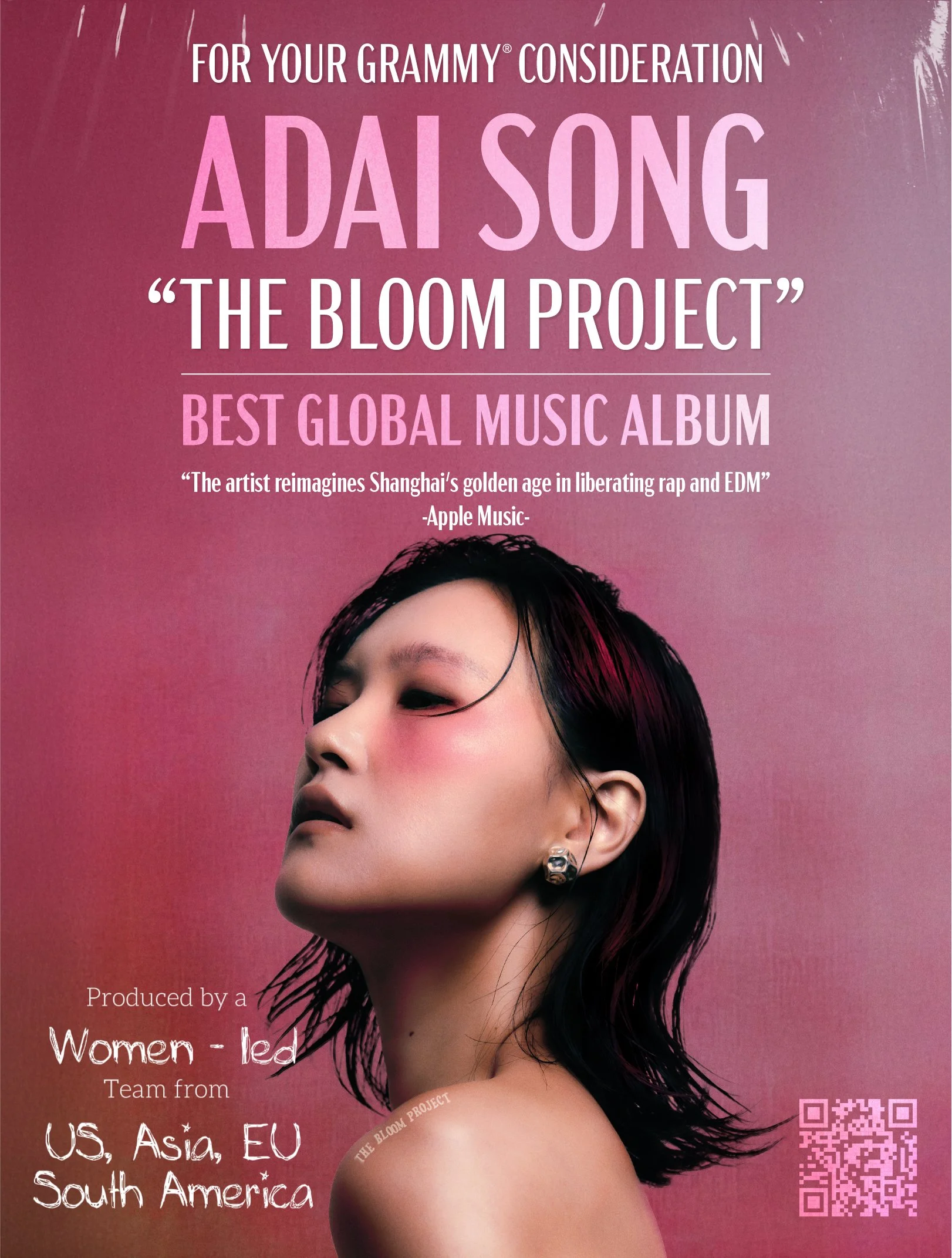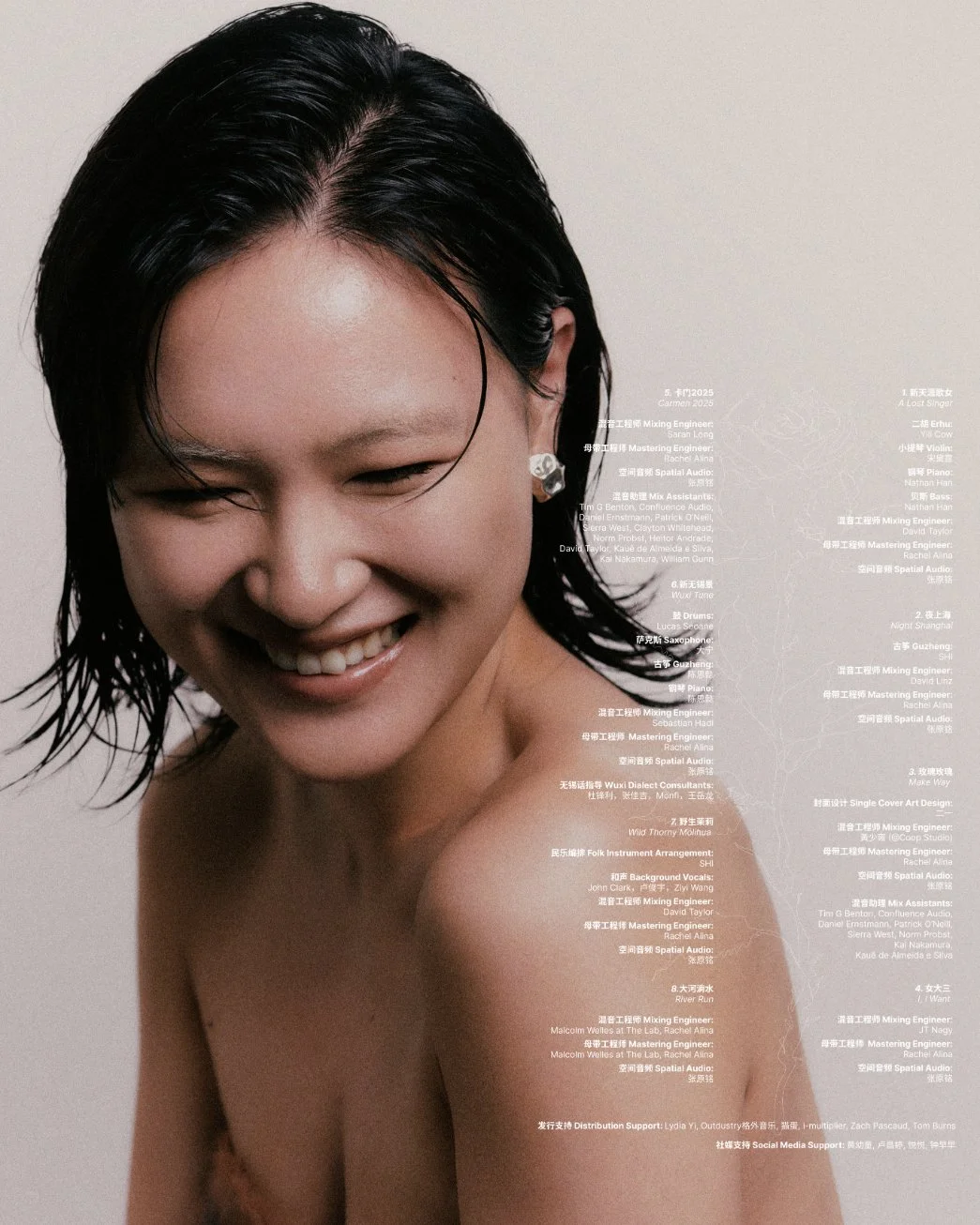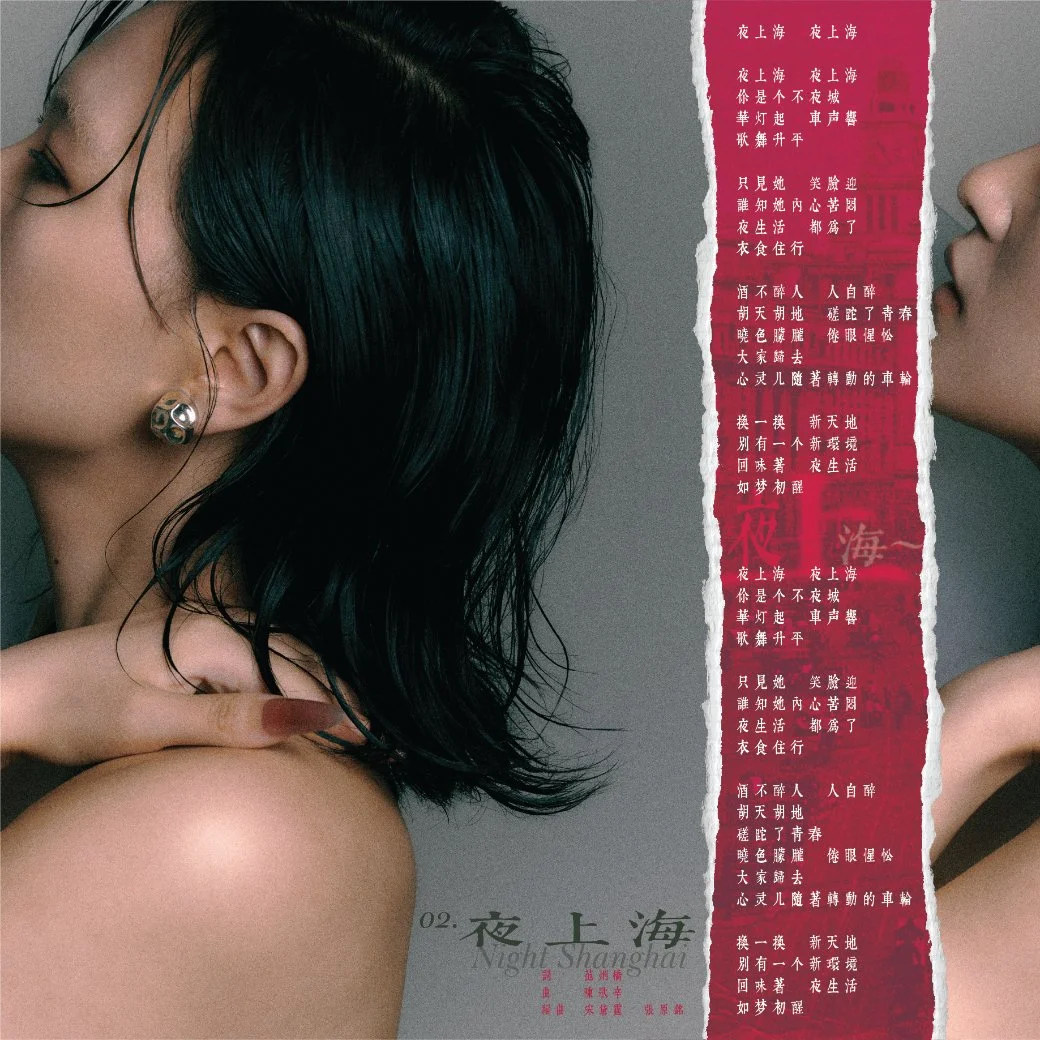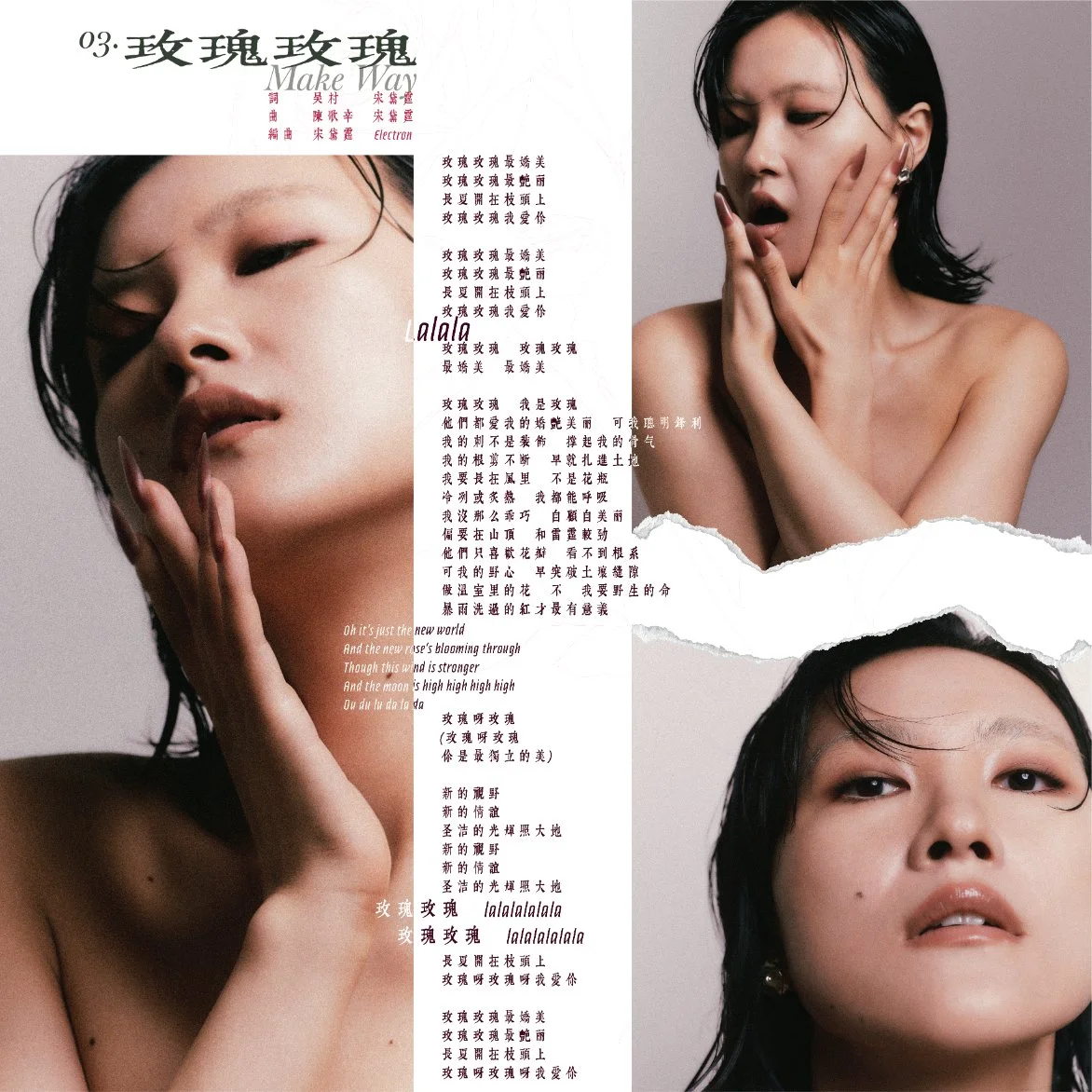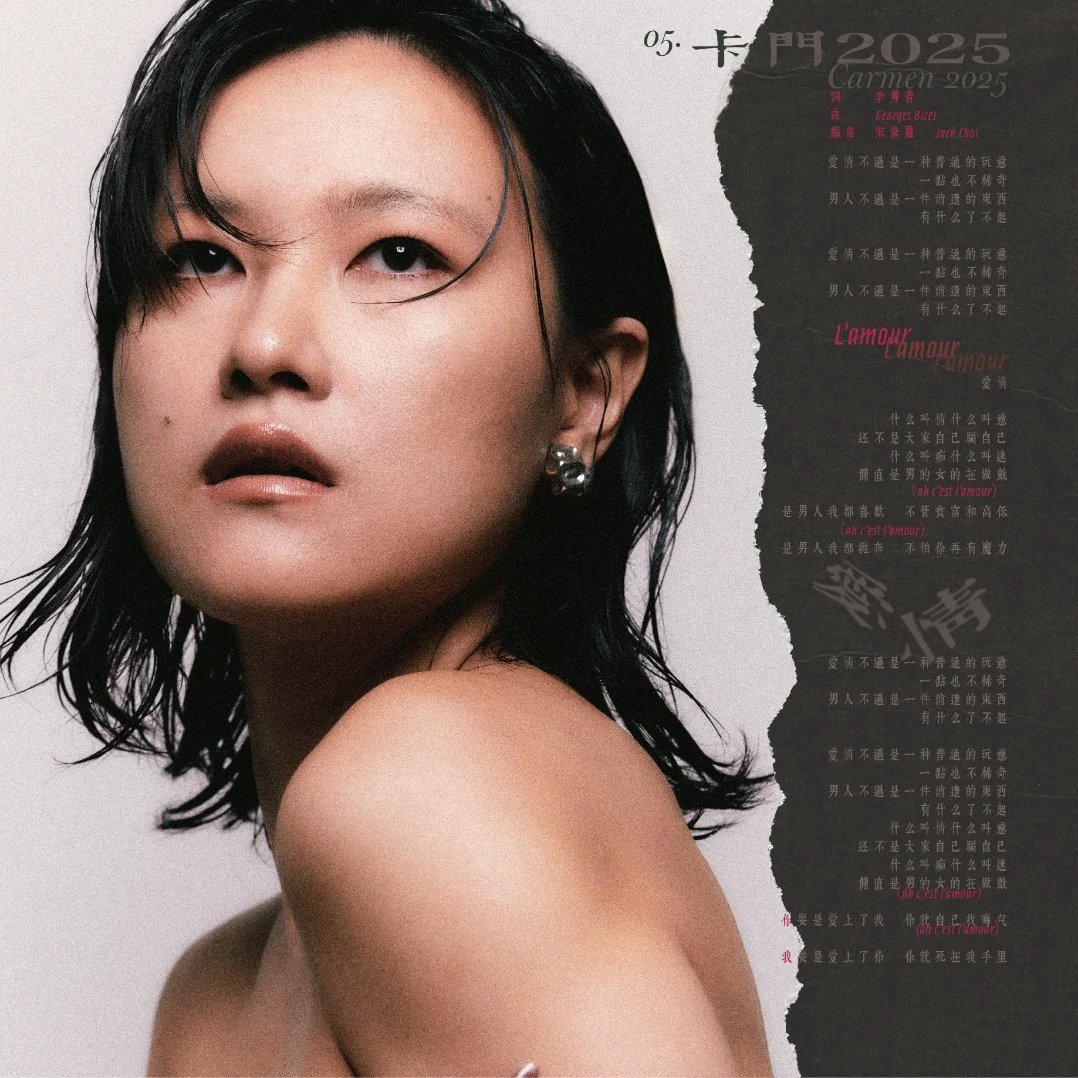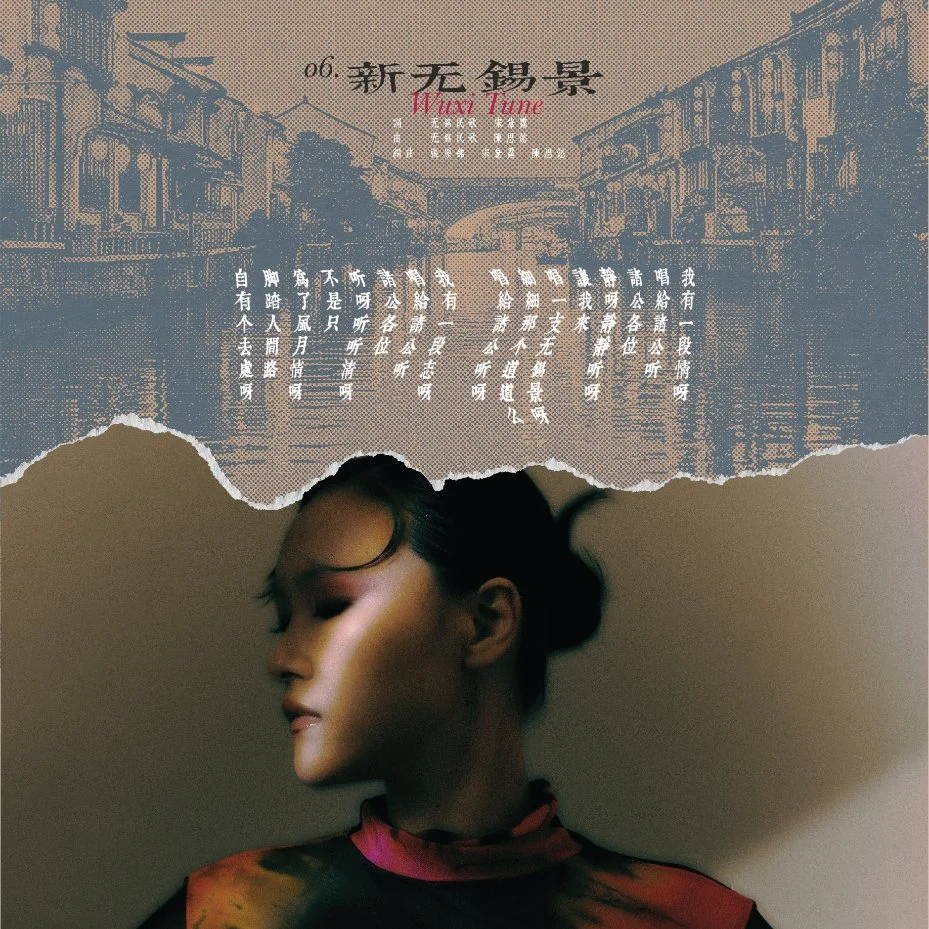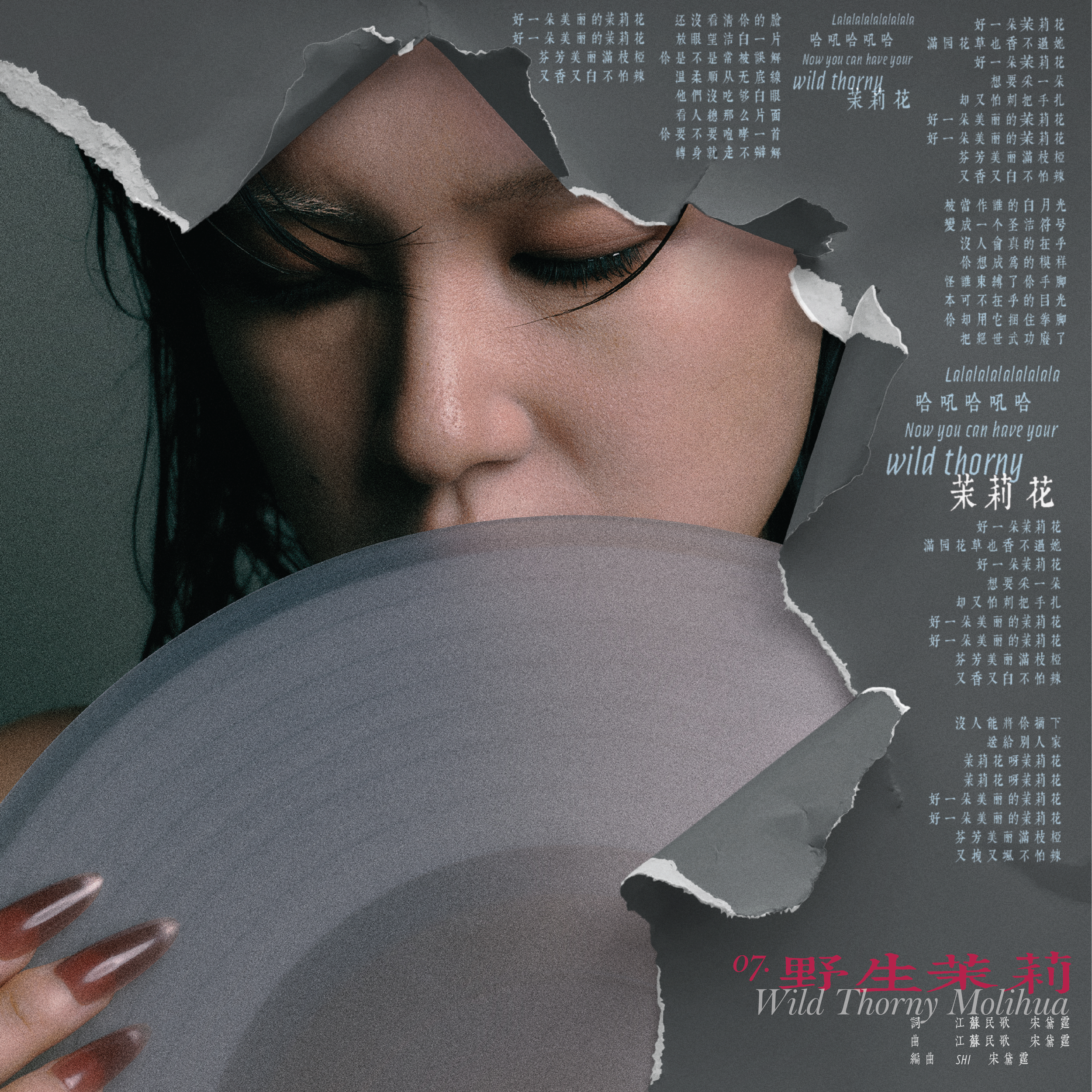The Bloom Project is a feminist reinterpretation of Chinese “shidaiqu”—an early 20th-century fusion of Chinese folk and Western jazz that emerged in 1920s Shanghai. I’ve reimagined these classic melodies with contemporary lyrics and bold arrangements that weave EDM, traditional Chinese instruments, and rap.
Led by Adai Song herself, produced and mixed with a team of Berklee Alumni—from the MPE Department, BerkleeNYC Master's Program, and Berklee Online—and mastered by Berklee Alumni & Faculty Member Rachel Alina, engineered by Grammy-winning producers Zach Cooper and Grammy-nominated producer Ian Kimmel, this album is a true international collaboration of talents from the US, Asia, Europe and South America.
Album Credits 专辑制作名单
Album Producer: Adai Song 宋黛霆
Arrangers: Adai Song, Electron, SHI, Jack Choi, Yuanming Zhang, Siyi Chen
Mastering Engineer: Rachel Alina
Engineers: Rachel Alina, Zach Cooper, Ian Kimmel, Skyler Bennett, Yuanming Zhang
Dolby Atmos Mixing Engineer: Yuanming Zhang 张原铭
Mixing Engineers: David Taylor, David Linz, Huang Shao Yong 黄少雍, JT Nagy, Sarah Long, Sebastian Hadl, Malcolm Welles at The Lab (also Mastering Engineer), Richard Newman
Assistant Engineer: Annamarie Rosanio
Instrumentalists: Nathan Han (Keys, Bass), Yili Cow (Erhu), SHI (Gu Zheng), Siyi Chen (Gu Zheng, Keys), Lucas Seoane (Drums), Da Ning (Sax)
Vocalists: Adai Song, Lionzed, John Clark, Junyu Lu, Ziyi Wang
Mix Assistants: Tim G Benton, Confluence Audio, Daniel Ernstmann, Patrick O’Neill, Sierra West, Clayton Whitehead, Norm Probst, Heitor Andrade, David Taylor, Kauê de Almeida e Silva, Kai Nakamura, William Gunn, Richard Newman
Other Credits 制作人员名单
Photography 封面摄影: Cassie Zhang
Hair & Makeup 妆发: Kevin Cheah
Packaging 包装: Dingyuan Zhang@向晚巴士
Design 设计: Zhenqi Ji
With support from 赞助: The NYC Women’s Fund for Media, Music, and Theatre, by the NYC Mayor’s Office of Media and Entertainment in association with NYFA.
Recording Studio Support: Powerstation @ Berklee NYC thru Faculty Recording Grant
Distribution Support 发行支持: Lydia Yi, 庚成,Outdustry格外音乐, 猫蛋, i-multiplier, Zach Pascaud, Tom Burns
Social Media Support 社媒支持: 二一,黄幼童,Ronald Sheng, Xinhui Ma, 卢昌婷,悦悦,钟早早, 粽子,大大,John C,Matt C,黄小凯,黄原,année
Public Relations: Malcolm Welles
1 A Lost Singer -- Alone but Resonant, She Builds Her Own World
This reimagines the 1937 classic “Tianya Genu,” originally performed by Zhou Xuan. In the old version, a woman wandered the world in search of a kindred spirit. In mine, she builds her own:
“Not waiting for a soulmate—but forging her own fate.”
Piano and bass offer a steady emotional ground. Erhu and violin intertwine to express solitude and strength. She’s not drifting anymore—she’s claiming her path.
2 Night Shanghai — Neon Never Sleeps, Fate Still Turns
This 1947 classic captured the loneliness beneath the glittering surface of postwar Shanghai. Today’s young people in metropolitan areas live a similar paradox—city lights, fun but no guarantee.
Using EDM house rhythms and synth textures, this track pairs guzheng with electronic beats, evoking both nostalgia and the energy to dance through uncertainty.
3 Make Way — From 1940 to 2025, the Rose Still Blooms
A reinterpretation of the 1940 shidaiqu hit “Rose, Rose, I Love You,” the first Chinese pop song to break into the U.S. market (covered in 1951 by Frankie Laine). In my version, the rose no longer waits to be admired—she speaks for herself:
“My thorns aren’t decoration—they hold up my pride.”
“I want to grow wild in the wind—not sit in a vase.”
Musically, it blends house EDM with pipa, gongs, Japanese koto and shamisen, Western strings and guitar, and modern synths. It transforms a symbol of old Shanghai into a 2025 anthem of agency.
4 I, I Want — Big Girl’s Love Is Straightforward—No Curveballs
A playful, direct, and flirtatious modern love song, told through a teasing dynamic. Her voice is bold, his is soft—they clash, challenge, and flirt their way to truth.
Traditional Chinese instruments dance between trap beats and hip-hop rhythms. It’s not just a confession—it’s a claim: women can want, and ask, and decide.
5 Carmen 2025 — The Avant-Garde Never Ages
Fusing EDM, Chinese traditional percussion, and 1960s Chinese lyrics adapted from the original French opera Carmen, this track opens with motifs from Bizet’s 1870s composition, layered with guzheng, temple blocks, wood clappers, and small gongs.
The drop features guzheng solos that stretch melodic boundaries, representing a woman’s fight against the strictures of tradition. Carmen’s spirit—defiant, sensual, independent—is as radical now as it was in the 19th century.
6 Wuxi Tune — Not Just Romance, But Resolve
Inspired by the southern storytelling genre Wuxi Jing, this song opens:
“Let me sing to you all.”
But this time, the song isn’t about longing—it’s about walking one’s own road. With UK Garage rhythms and jazz-inspired textures, traditional Chinese and western live instruments (guzheng, saxophone, jazz drums) and electronic elements merge, reclaiming an old artform for new ambitions.
7 Wild Thorny Molihua — Soft but Thorned
Inspired by the folk song “Mo Li Hua (Jasmine Flower),” this track reimagines the jasmine as wild, misunderstood, and sharp:
“They call me soft and pure, but never looked closely.”
“They want to pluck me—but fear the thorn.”
Its chorus uses the original melody over punchy electronic beats. Shakuhachi brings haunting depth. In the end, jasmine sings for herself—bold, fragrant, and unapologetically free.
8 River Run — Letting Go, Flowing Like Water
Based on the folk song “River Flows,” this track is a song of graceful farewell. The lyrics move between old and new:
“Love’s gone, and I become the river.”
Built on looping basslines and house kicks, the familiar melody floats in as an airy synth. Guzheng, yangqin, and shakuhachi shimmer in and out, creating a sonic river—flowing, firm, free.
